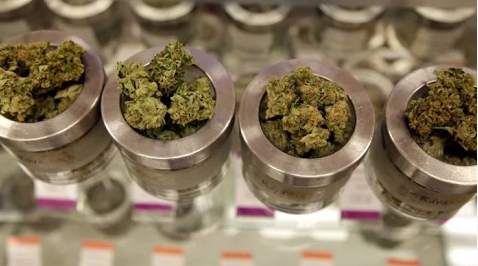Entrepreneurs See Franchising as the Future of Cannabis Retail
Last week in Las Vegas, the MJBIZCON business convention brought together all the major players in the legal cannabis market across North America. In addition to discussing the latest successes in legalization in the U.S. and other countries, attendees focused on the future prospects and opportunities for market growth.
In Nevada, where the event was held, cannabis legalization has provided a new source of revenue for both the state and its residents, injecting hundreds of millions—if not billions—of dollars into the local economy, much of it from cannabis tourism. Drawing on Nevada’s experience and even more impressive results from other states, many experts believe that with the current pace of legalization, the national cannabis industry will continue its dynamic growth, especially through franchising popular cannabis retail brands in newly opened markets.
Franchising: A Path to Rapid Expansion
Some participants, like Christian Hageseth, CEO of ONE Cannabis in Denver, suggested that this business model could soon lead to cannabis stores outnumbering supermarkets and fast-food restaurants. “In Denver, you can find stores selling both recreational and medical cannabis on almost every corner,” Hageseth said in an interview. “Given my experience in the cannabis business, I can say that in such a competitive environment, it’s extremely tough for new businesses to survive. On the other hand, with the popularity of this business, I believe the future of the market depends not on launching new companies, but on opening official branches of established brands in regions that have recently reformed their laws.”
“The clear advantage of this expansion model is that franchising helps businesses avoid many of the unnecessary costs and mistakes typical for newcomers,” Hageseth added. “This approach allows local entrepreneurs to access the resources and technology of large, experienced market players, while the company itself gains valuable knowledge about local markets and potential customers.”
Currently, ONE Cannabis is negotiating to open licensed stores under its brand in nearly all of the 30 legalized regions in the U.S., including the District of Columbia.
Franchising Bridges Big Brands and Local Businesses
“Like any other industry, the cannabis business can be organized and run in many different ways,” said David Goldwater, one of Nevada’s first-generation cannabis entrepreneurs. He believes the franchising model is ideal for the industry, as the success of a cannabis store depends on how well its staff understands and serves local consumer preferences.
“In my view, this model is a great example of synergy between large companies with resources and capital and small, emerging businesses,” Goldwater explained. “Franchising helps small businesses overcome financial and legal barriers to entry, while large companies benefit from closer ties to local consumers, making it easier to stay in tune with their preferences and interests.”
Christian Hageseth also noted that the reputation and quality guarantees provided by major brands help new businesses attract more customers, thanks to the appeal of a well-known name. “In developed markets like the U.S., you can’t ignore the power of a big brand’s image for the average consumer,” Hageseth said. “Americans are used to buying not just for product features, but for the brand image. That’s why Starbucks cafes are more successful than independent coffee shops, and why McDonald’s has replaced many local burger joints. The recognizable brand assures customers of a certain level of quality and service.”
High Costs and Legal Barriers Remain
Even supporters of franchising admit that opening a cannabis franchise can be expensive. Depending on local laws, starting a new franchise location can cost anywhere from $750,000 to $2,500,000. According to Hageseth, these high costs are mostly due to legal barriers in the cannabis industry, which require significant time and money to overcome.
“Unfortunately, current legalization laws allow for significant differences in business regulations not just between regions, but even within a single state. What’s allowed at the state level can be restricted by a county or city at any time,” Hageseth explained. “Partnering with large companies helps small entrepreneurs protect themselves financially in case of unexpected changes and provides legal support for local certification procedures.”
Adopting this business model could allow major cannabis companies to expand their retail networks worldwide and give people without the means to open their own legal cannabis business a chance to participate in the industry.
Franchising as a Sign of Public Trust
“Finally, the spread of franchising in the cannabis business is a reliable indicator that the public truly trusts our industry. After all, I doubt people would be interested in buying a cannabis franchise if they didn’t trust these organizations or believe in their success,” Hageseth said.
Of course, there are still obstacles to this business model, such as state-level limits on the number of cannabis stores. Even in regions that actively support cannabis business development, like Nevada or Colorado, government agencies may try to limit new licenses and franchises to balance legal production with demand.



